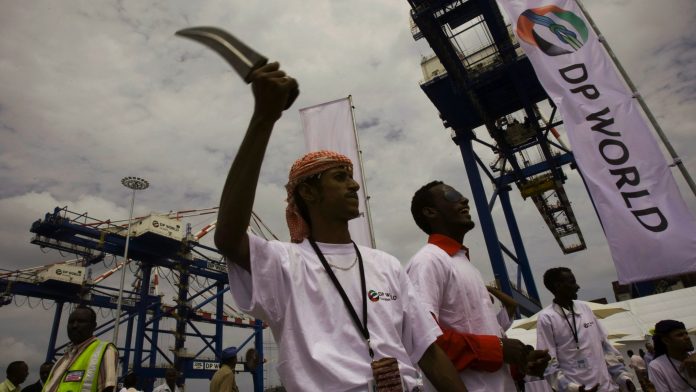
The dispute between the government of Djibouti and DP World runs on and on. The Dubai firm says that it still regards its concession to operate Doraleh Container Terminal (DCT) as being in force, although its employees have been forced to leave the country
DP World argues that the government “unlawfully seized control of the terminal” on 22nd February and it has referred the new dispute to the London Court of International Arbitration (LCIA).
The Djibouti Ports & Free Zones Authority (DPFZA) claimed in February that the concession had been cancelled because of DP World’s poor performance, but given that this action was taken after the government had its original corruption allegations against the Dubai rejected by the LCIA, this seems unlikely. DPFZA says that it is prepared to buy DP World’s 33% stake in DCT, but the port operator says that it has not yet received any offer for its stake.
DP World group chairman Sultan Ahmad bi Sulayem said: “We demand Djibouti cease its unlawful conduct and continue to work with us as partners. The cooperation has been in place for 18 years and has yielded hundreds of millions of dollars. Africa needs infrastructure and if nations can change laws to take assets it will be difficult to attract further investment.”
The government of Djibouti says that it is in talks with CMA CGM over developing a new transhipment container terminal at the Port of Djibouti. CMA CGM already includes Djibouti on several of its weekly services. DPFZA chairman Aboubakar Omar Hadi said that the terminal would require initial investment of US$660M to provide annual handling capacity of 2.4M TEU, but expansion could increase this to 4M TEU. Speaking at the Africa CEO Forum in Abidjan, he said that construction could begin as early as September and take two years. This seems a very ambitious timetable.
In a statement responding to the news, DP World said: “Take notice that DP World and DCT are the lawful holders of rights in respect of the ownership and operation of the container shipping terminal at Doraleh, Djibouti, and will pursue all available legal recourse, including claims for damages, against any other entities that tortuously interfere or otherwise violate their rights with respect to the Concession Agreement.” According to DP World, its agreement with the government also gives it “exclusive rights to build and operate any other container ports and free zones in Djibouti.”
Meanwhile, following its complaint in March about “sovereignty violations” by DP World, the government of Somalia is seeking to block the company from developing the port of Berbera in the Somali breakaway state of Somaliland, for which it signed a 30 year concession in May 2016. Mogadishu controls only part of its territory because of the civil war against Islamist militant group Al Shabab, but also because the breakaway territories of Puntland and Somaliland on the Red Sea coast have effectively operated as separate states for more than 20 years.
Mogadishu fears that the port project will strengthen Somaliland’s independence. It already fears Ethiopian involvement in its domestic affairs, despite military support the latter has given in the battle against Al Shabab. Somalia’s parliament has now voted to ban DP World from operating anywhere in the country, which it considers as including Berbera.
The government of Ethiopia has agreed to take a 19% stake in Berbera’s operating company. Addis Ababa has revealed that it has agreed to switch some of its trade from Djibouti to Berbera as part of the agreement. Djibouti currently handles 95% of Ethiopian trade and so its government is keen to open up access to alternative ports in order to provide some competition and increase its security.
With the exception of Eritrean ports, which Addis Ababa does not want to use because of extreme tensions with its neighbour, Berbera and Djibouti are the two closest ports to most Ethiopians. The government of Ethiopia is also keen to encourage the use of Mombasa in Kenya and Port Sudan in Sudan by Ethiopian traders. Djibouti is highly dependent on Ethiopian trade, which accounts for about 70% of containers passing through its terminals.
![]()





























